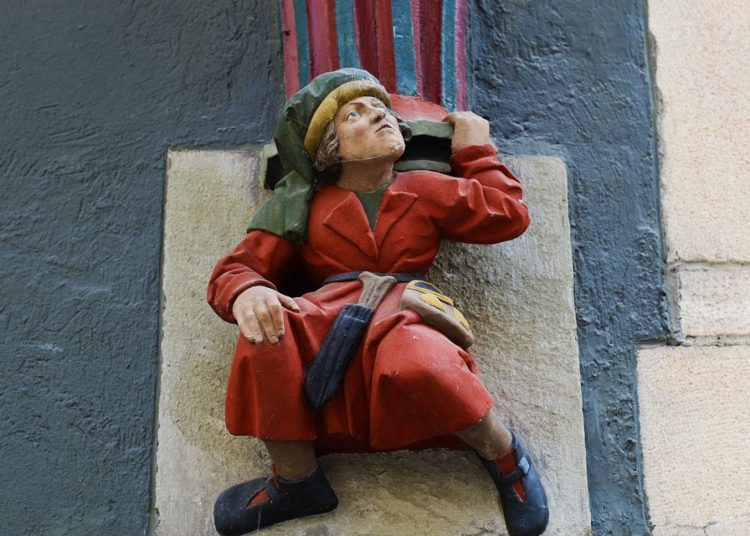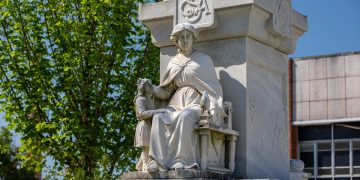The Mythical Legends: Stories of Iconic Figures Throughout History
Throughout history, there have been countless legendary figures whose stories have been passed down through generations. These mythical legends have captivated the imaginations of people around the world, inspiring art, literature, and even modern-day pop culture. From gods and goddesses to heroes and monsters, these iconic figures have left a lasting impact on society. In this article, we will explore some of the most famous mythical legends and the stories that have made them eternal.
Greek Mythology
One of the most well-known and influential mythologies in history is Greek mythology. The ancient Greeks believed in a pantheon of gods and goddesses who ruled over the world from Mount Olympus. These gods and goddesses were said to possess superhuman abilities and were often depicted in art and literature as larger-than-life figures. Some of the most famous Greek gods and goddesses include Zeus, Hera, Athena, and Apollo.
Zeus
Zeus was the king of the gods and the ruler of Mount Olympus. He was known for his lightning bolt and was considered the most powerful of all the gods. Zeus was also notorious for his many love affairs with mortal women, which often resulted in the birth of demigod heroes like Hercules.
Hera
Hera was the queen of the gods and the wife of Zeus. She was known for her jealousy and her fierce protection of her marriage. Hera was often depicted as a regal figure, wearing a crown and holding a scepter. Despite her flaws, Hera was also a powerful goddess in her own right, associated with marriage and childbirth.
Norse Mythology
Another rich mythology that has captured the imagination of people around the world is Norse mythology. The ancient Norse people believed in a pantheon of gods and goddesses who lived in Asgard and ruled over the world. These gods and goddesses were known for their strength, bravery, and cunning. Some of the most famous Norse gods and goddesses include Odin, Thor, Loki, and Freya.
Odin
Odin was the king of the gods and the ruler of Asgard. He was known for his wisdom, his knowledge of magic, and his ability to see into the future. Odin was also a fierce warrior who led the gods into battle against their enemies. He was often depicted as an older man with a long beard and a wide-brimmed hat.
Thor
Thor was the god of thunder and the son of Odin. He was known for his incredible strength and his trusty hammer, Mjolnir. Thor was a popular figure among the Norse people, who believed that he protected them from harm and brought them good fortune. Thor was often depicted as a powerful warrior with red hair and a beard.
Egyptian Mythology
The ancient Egyptians also had a rich mythology that included a pantheon of gods and goddesses who ruled over the world. These gods and goddesses were often depicted in art and literature as half-human, half-animal beings with unique powers and abilities. Some of the most famous Egyptian gods and goddesses include Ra, Isis, Osiris, and Anubis.
Ra
Ra was the sun god and the ruler of the gods. He was believed to travel across the sky in his sun boat, bringing light and warmth to the world. Ra was often depicted as a man with the head of a falcon, wearing a sun disk on his head. He was one of the most important gods in the Egyptian pantheon.
Isis
Isis was the goddess of magic and motherhood. She was known for her compassion and her ability to heal the sick and injured. Isis was also the wife of Osiris, the god of the afterlife. She was often depicted as a woman with a throne-shaped headdress and a pair of wings.
Common Questions About Mythical Legends
1. Are mythical legends based on real people?
Many mythical legends are based on real people or events that have been exaggerated over time. For example, the story of King Arthur is believed to be based on a real British leader who lived in the 5th or 6th century. However, the details of his life and deeds have been embellished in the centuries since his death.
2. Why are mythical legends still relevant today?
Mythical legends are still relevant today because they tap into universal themes and emotions that resonate with people of all cultures. These stories often explore concepts like love, betrayal, heroism, and sacrifice, which are timeless and have enduring appeal. Additionally, mythical legends can provide insight into the beliefs and values of ancient societies.
3. How have mythical legends influenced modern culture?
Mythical legends have had a profound influence on modern culture, shaping everything from literature and art to film and television. Many popular books, movies, and TV shows are inspired by mythical legends, reimagining these ancient stories for a contemporary audience. Additionally, mythical legends continue to inspire artists, writers, and creators to this day.
Conclusion
Mythical legends are an integral part of human history and culture, offering insight into the beliefs and values of ancient societies. From the gods and goddesses of Greek mythology to the heroes and monsters of Norse mythology, these iconic figures have left a lasting impact on the world. By exploring these mythical legends and the stories that have made them eternal, we can gain a deeper understanding of the human experience and the power of storytelling.
Whether you are a fan of ancient mythology or simply curious about the legends that have shaped our world, the stories of iconic figures throughout history are sure to captivate and inspire you.












